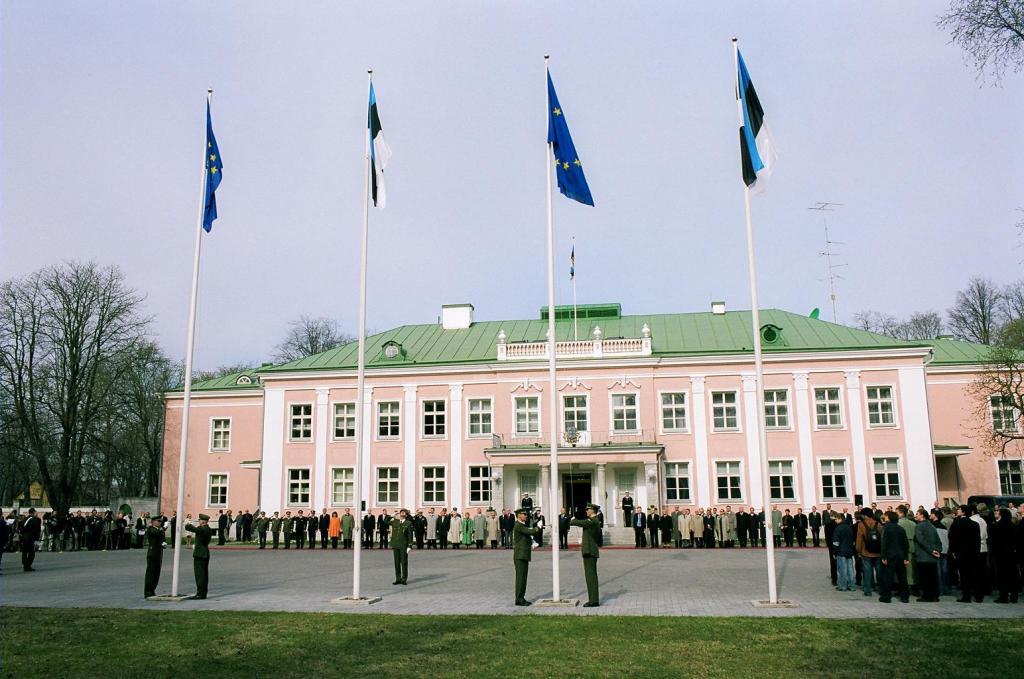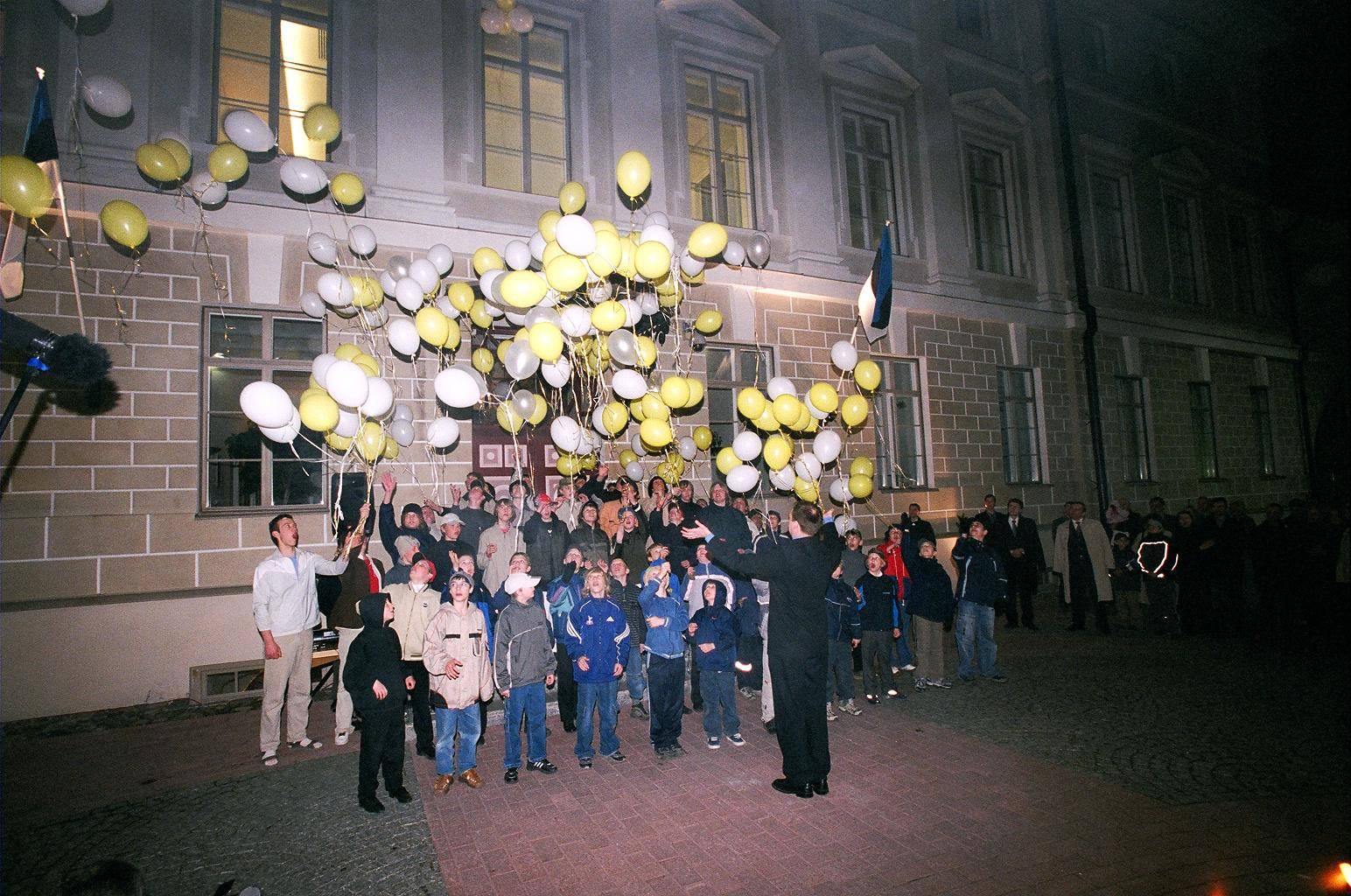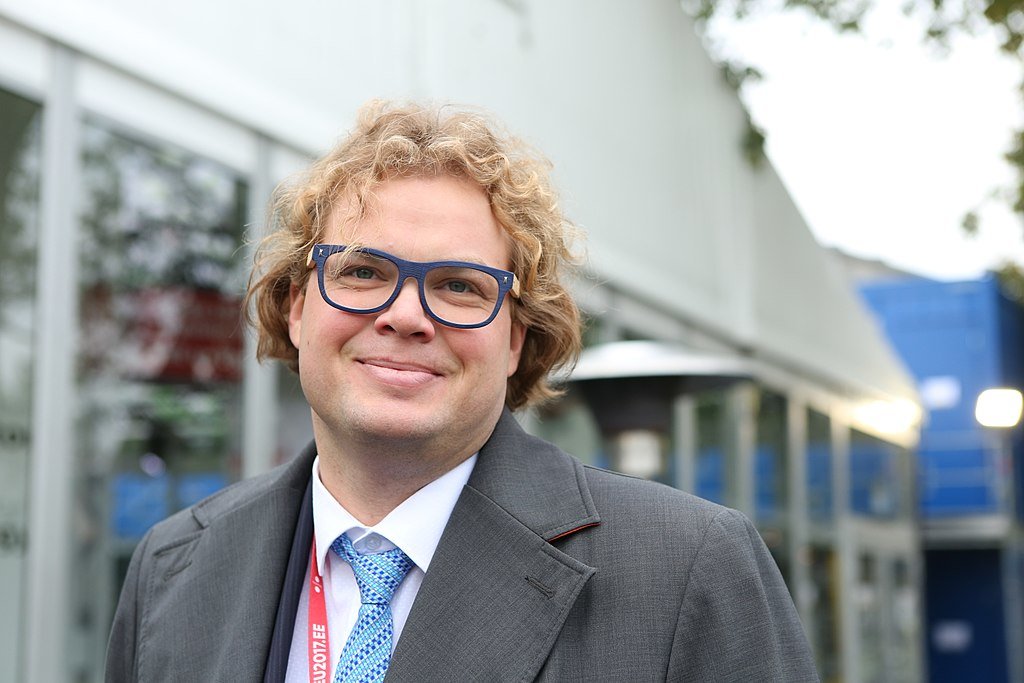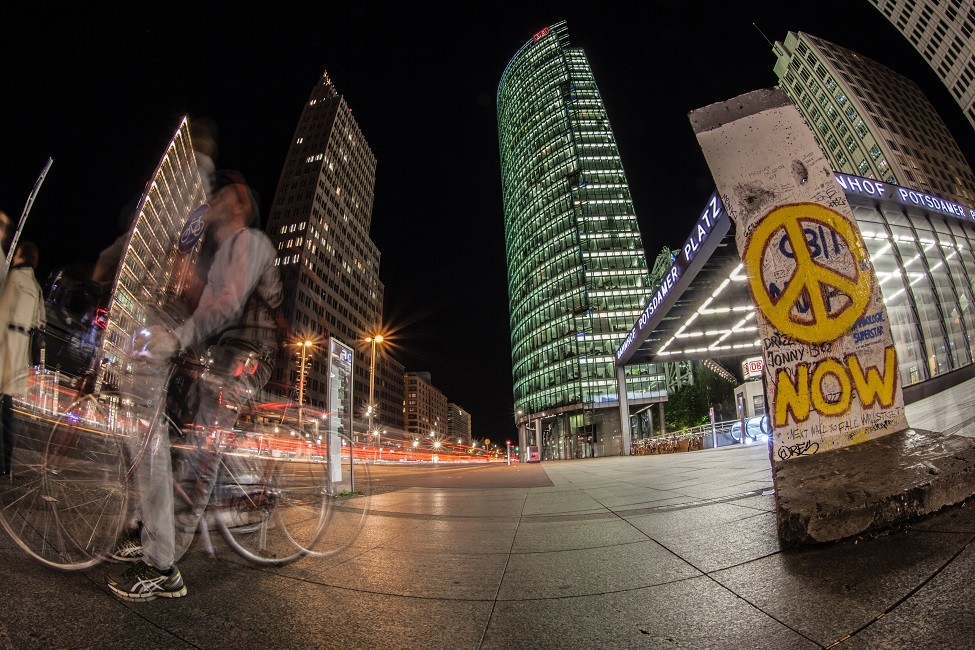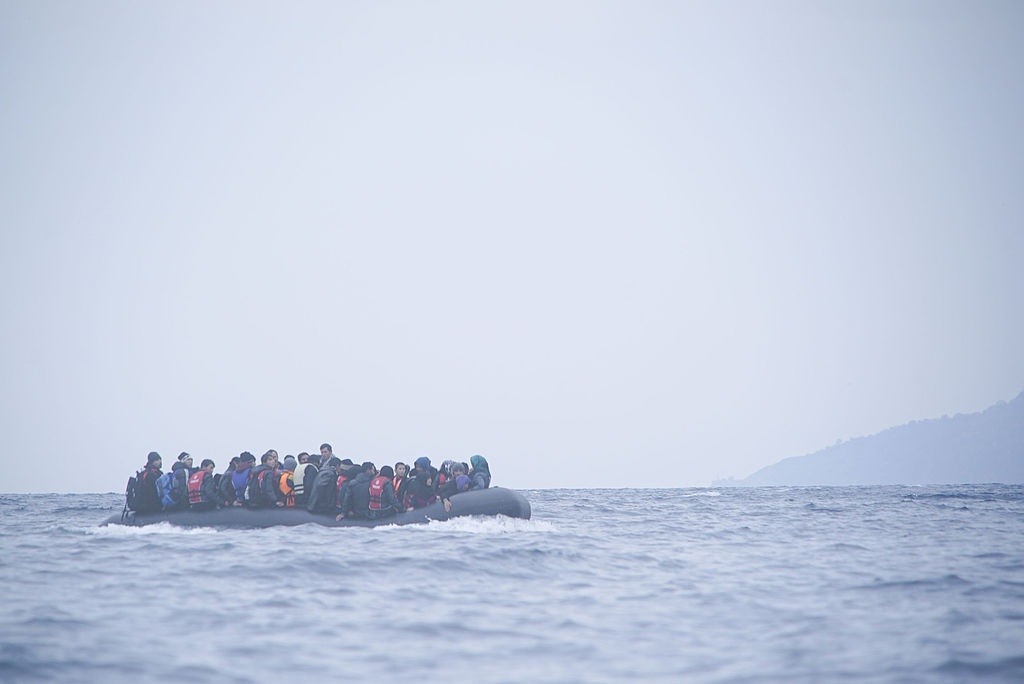Estonia has been a member state of the European Union for 15 years – Estonian World takes a closer look at the journey towards the EU, the biggest achievements during these years and contemplates the developments and challenges the country might face in the future.
The first vote in my life that I was legally allowed to cast was probably the most important one. It was 14 September 2003, I had just turned 18 and still remember how proud I felt being able to participate in the referendum concerning the potential Estonian membership of the European Union. On that day, I walked to a polling station very close to my home – and everyone in my family participated as well. The results spoke for themselves – 66.83 per cent of the Estonian voters supported joining the EU, and the turnout was 64 per cent.
Born in the year of the perestroika – a reformist initiative launched by the Soviet leader, Mikhail Gorbachev, in 1985 – one of my first memories was standing in the Baltic Way that united approximately two million people standing hand-in-hand all the way from Tallinn to Vilnius. I also had a father who joined Kodukaitse (the Home Defence Guard) right after Estonia regained its independence in 1991 – all of this means that I am a child of the generation who very well understands that being a part of Europe is the most important thing for Estonia’s future.
On that day in 2003, I could not yet imagine that there would be a time when enrolling for my master’s degree programme at a German university would be just as simple as enrolling for the universities in Tartu or Tallinn. A antime where Estonia would not only be a part of the EU, but also Schengen and NATO. I could not yet imagine that driving from Tallinn to Trieste, Tarragona or Toulouse would be almost as easy as driving to Türi.
I have often wondered what would have happened and where would Estonia be today if the results of that September referendum had been any different. Estonia has not only developed faster that anyone could have expected, and experienced immense social, economic and even psychological benefits in the process, but has also become a trusted partner within the EU. A partner with a voice that has its own representation in Brussels, who held presidency of the Council of the EU in 2017; a country with the easternmost EU border who is also considered an expert in many matters concerning relations with Russia.
Estonia’s road to the EU
Estonia is often depicted as a wunderkind among the countries formerly occupied by the Soviet Union. In a study conducted by the US think tank, StrategEast, in 2018 and 2019, Estonia was considered the most westernised of the former Soviet-occupied countries – it received 23 points out of the maximum 25 points for political and legal westernisation.
This does not come as a surprise to Estonians themselves. If there is anything that the media in the Western countries might not take into account, or even understand, is that Estonians have always considered themselves European – even during the Soviet occupation, or especially during these hardships. For most Estonians, joining the European Union was simply a continuation of the politics of the Republic of Estonia, founded in 1918.
Estonia joined the EU on 1 May 2004, the Schengen area in 2007; and in 2011, Estonia was also the 17th member state to join the eurozone. According to the latest Eurobarometer, 81% of the people in Estonia feel that they are citizens of the EU and trust in the EU lies at 53%.
In his official statement, marking 15 years since Estonia joined the EU, the foreign minister, Urmas Reinsalu, emphasised that joining the bloc and exercising our member rights was the will of the Estonian people, and that former governments and diplomats have all worked very hard to make this happen. “The European Union membership has made Estonia more influential, has immensely increased our security and has given Estonian people additional rights and freedoms,” he said.
Klen Jäärats, the director for European Union affairs at the Government Office, is a man who has worked in Europe and with Europe for years. He does not hesitate to quote one of the statements by the Estonian president, Kersti Kaljulaid, right away: “To put it very simply, we are at the table, not on the menu.” Jäärats says that joining the EU is what we wanted, and we have used this window of opportunity very well – he goes on to quote the Irish poet Seamus Heaney and his “June Poem”:
“History says,
Don’t hope
On this side of the grave…
But then, once in a lifetime
The longed-for tidal wave
Of justice can rise up,
And hope and history rhyme.”
“Great things can, indeed, happen when history and opportunities come together, and you use them well. Estonia has used these opportunities more than once in the course of history – for example, both times when we became independent, and also when we joined the EU and NATO,” Jäärats asserts. “At the same time, we must remember that everything we have achieved is not just thanks to opportunities or sheer luck, it is first and foremost thanks to the actions and heroic deeds of our own people.”
Jäärats notes that it would be much harder to start this journey towards freedom and democracy one more time. In his opinion, Estonians are currently already forgetting the hardships on the journey towards the EU. “We did not simply decide to ‘go’ or ‘join’ the EU, we were accepted into this alliance. It was a rough journey – a course of obstacles to fulfil the criteria to be accepted,” he emphasises.
He says it’s still somewhat hard for people from the West to understand the rapid development of many newer EU member states. “I have tried to explain this development to some of my colleagues in Western Europe – how Estonians have experienced completely different societies, different economic systems, different value systems, not to mention three different currencies. This has all happened within one generation and would be a huge change for every country – the protagonists and real heroes of the story are Estonian people who have suffered through all of this but have mastered everything in the end.”
Jäärats also agrees with me that Estonians have always felt part of Europe. Lennart Meri, the first president of Estonia after the restoration of independence, strongly supported the theory that we never left Europe, Europe simply returned to us. “Still, the story of the EU has always been much more about the large Western European countries – France, Germany and the UK – and the stories of Eastern European countries have mostly been forgotten. The narrative of the EU, especially the last 15 years, has largely been about getting re-acquainted, getting to know each other again,” he says.
The benefits of EU membership for Estonia
Jäärats emphasises that the EU is closely tied to NATO and Schengen. “I would say that the most important public benefit is definitely Estonia’s safety and defence – one of the main reasons we joined these alliances. Looking back, thank God we did!”
The EU has, of course, helped Estonia in developing a lot of aspects of our daily life – water management, new roads and infrastructure, fast internet, to name a few benefits. “On a larger scale, however, the EU has helped us to feel safe again. Preserving our liberal market economy also becomes more important,” he explains.
Sven Mikser, a former foreign minister, backs up the safety argument. “Belonging to the EU is giving Estonia – a small country and a small nation in a geopolitically complex area – the certainty that tomorrow and the day after tomorrow, Estonia will still be a safe place for living and working, a country to invest in. We can go discover the world from Estonia and then come back home,” he told Estonian World.
Klen Jäärats also emphasises that the membership in the EU has brought Estonia more freedom. “Estonians wanted to leave the Soviet Union not only to be able to buy bananas in a store, but to have more personal freedom all around, and all the other freedoms and liberties that came with it. These freedoms and liberties have only continued expanding since then – we can travel more freely than ever, not to mention the free movement of goods and people.”
From a country behind the Iron Curtain whose citizens could not travel freely, if at all, Estonia’s passport has now become one of the best in the world – it ranks 12th in the world by its total visa-free score. “We mostly feel European when we travel outside of Europe – the world is very large and the more you travel, the more you understand the difference between Europe and other corners of the earth. There are not many places that are an oasis of freedom in the world – most of them still comprise of Western countries,” Jäärats observes.
Estonia’s achievements in EU
Estonia joined the EU while being one of the most euro-sceptical countries. But during the last 15 years, Estonians’ support for the EU has steadily risen and is currently among the highest in the union. According to the latest Eurobarometer, 81% of the people in Estonia feel they are citizens of EU and trust in the European Union lies at 53%. Estonia is not alone in that matter – the level of trust towards EU is at an all-time high in most member countries.
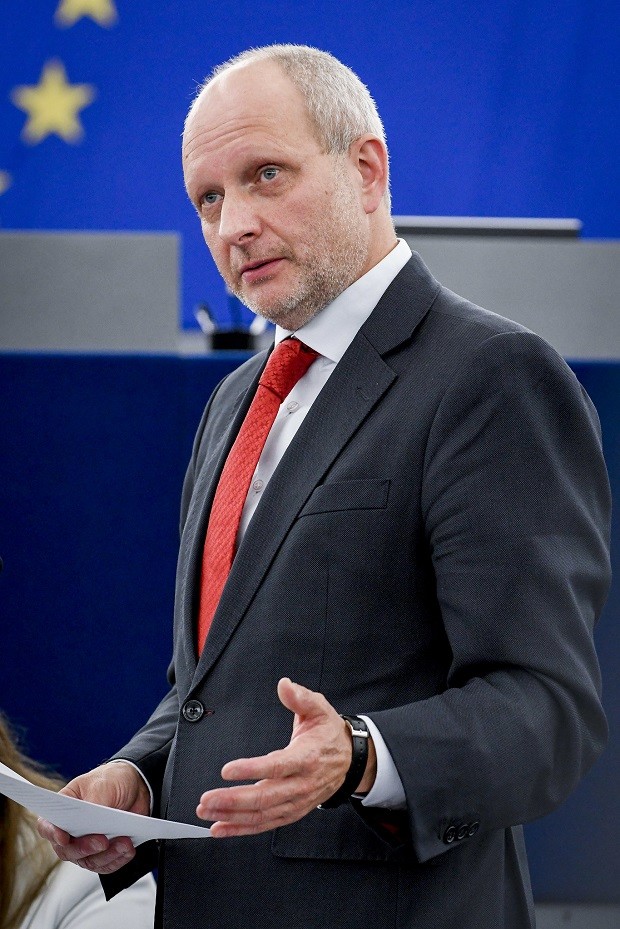 Matti Maasikas, the undersecretary of European affairs at the foreign ministry, emphasises that Estonia has established itself well as an equal partner in the EU. “We play a crucial and responsible part in shaping EU common policies, most importantly everything related to the Digital Single Market, Neighbourhood and Enlargement policies, Cohesion Policy, Common Agricultural Policy, everything related to connectivity as well as many other areas,” he says.
Matti Maasikas, the undersecretary of European affairs at the foreign ministry, emphasises that Estonia has established itself well as an equal partner in the EU. “We play a crucial and responsible part in shaping EU common policies, most importantly everything related to the Digital Single Market, Neighbourhood and Enlargement policies, Cohesion Policy, Common Agricultural Policy, everything related to connectivity as well as many other areas,” he says.
Maasikas remembers that even for seasoned European diplomats, some small European countries like Estonia were not so well known when accepted to the EU in 2004. It has all changed now. The “new members of the club” have grown into their roles and have become much better known and understood by others. “According to the latest EU Cohesion Monitor by the respected ECFR think tank, Estonia is 14th on the list of member states that other EU countries want to build coalitions with. Quite a diplomatic and political achievement, given Estonia’s relative weight among the smallest members of the club,” he notes.
Klen Jäärats agrees with these observations and states that Estonia has focused mainly on being a respected and trustworthy partner – a partner whose voice matters and whose collaboration is always welcomed. “It is especially important in the area of security where Estonia has become somewhat of an expert, especially for our region, for obvious reasons,” he says.
“We are, of course, a very small country with very few people, but as Jakob Hurt said, we can be great in our spirit. The general notion in Europe seems to be that Estonians are practical and open-minded people and it is easy to cooperate and collaborate with them – this kind of trust is harder to measure or publish in numbers, it is currently very high, and very important,” Jäärats adds.
Estonia’s contribution is also underlined by Urmas Paet, a former foreign minister, and now a member of the European Parliament. “Our contribution to the EU consists of our peaceful experience during huge societal changes, a healthy common sense that dictates our balanced and responsible fiscal policies, and the know-how and activity directed towards developing our world-known digital solutions as well as cyber security,” he told Estonian World.
Another former foreign minister and a lifelong diplomat, Marina Kaljurand, told Estonian World that “European Union has restored Estonia’s place in Europe and has given us a 27 times stronger and more powerful voice.”
The challenges in the EU and Estonia’s future
According to Matti Maasikas, the European Union faces immense challenges, both from outside and inside. He states that the rules-based global order and the benefits of globalisation that EU stands for and embodies, are being challenged. “In this situation, our political leaders and elites face a tremendous task to explain the benefits of the European integration much better. First of all, to our own citizens, but also to our partners abroad. We all must have the courage to make the positive case for the European Union.”
Klen Jäärats emphasises that the larger processes and developments in the world are not going anywhere and it is not possible to hide our head in the sand and think that they cannot touch us in small Estonia.
“One large topic, where the EU definitely has to take a stand and be active, is the global structure of the world that is mainly from the 20th century and largely developed by the West – I am talking about IMF, United Nations, WTO and other Western institutions,” he explains. “In a wider world, Europe is still simply a small peninsula, with only 500 million people. In a few decades, the population of the world might be around 10 billion – this is a huge change that our generation will most probably experience first-hand. This will be the key topic of the future.”
Jäärats mentions migration as another big topic. “What consequences this will bring, is a question that needs to be tackled in the coming years. Estonia has always been a supporter of stronger borders – not within the EU, but definitely the outside borders. This topic is of a huge political concern everywhere – and Estonia again has its own experience from history. Regaining control of the borders is important, but also depends on the solidarity between the countries, as mentioned before,” he says.
On an even larger scale, Jäärats can see two other “megatrends” in the world – that could be seen as crises, but there could also be opportunities. “First of all, the ecological crisis – it’s not just about the weather or the climate, but about sustainable lifestyle and sustainable development,” he notes. “I think Europe needs to find an opportunity in this crisis. We need to turn this into a new ‘green revolution’. I might be a pessimist, but I do not believe that people will change their behaviour. The solution would be to focus on and invest in the green technologies.”
Another great trend – a challenge and an opportunity in one – will be the technology. “The liberal market is based on an agreement on how the society works. Information technology is definitely changing all of these agreements. It is a huge system with giants like Facebook and Google, not to mention the large Chinese enterprises,” he says.
Quo vadis, Europa?
On the question of whether the European Union is still the best solution for Estonia, Jäärats sees no other alternative.
“The experience we have had during the last 15 years has been very intense – we have experienced the largest financial and economic crises of our times, we have seen European borders under attack, and the migration crisis that has followed it. I do believe Europe can manage these crises well – for example the Greek economic crisis,” he points out. “What has kept us together is solidarity – and solidarity is always based on countries helping each other.”
He underlines that the giving and receiving within the EU has always been equal. Estonia has not only received the wonderful benefits, but also contributed a lot – to security, development aid and solving issues. “The EU is a mechanism for finding solutions and no system is ever perfect, but no other system from the past or present even comes close to it. Such a deep connection and co-operation between the states does not exist in other alliances.”
Jäärats sums up his observations with a few good comparisons. “Some people gladly criticise things or simply do not want to deal with issues. It is always best to be in a system that forces you out of your comfort zone. It is always easy to fall into your own egocentric world and not change anything, but it is more important to be a part of a system that makes you tackle things that need to be tackled – but can often be ignored in democratic countries.”
“Another great quality of the EU is that we are in an environment of the best countries of the world, which is very motivating. Like football, it is no fun playing against an easy team, but instead challenging yourself against the best in the Champions League. The European Union is definitely the Champions League here.”
I
Cover: Estonian and EU flags hoisted in front of the Kadriorg Presidential Palace on the morning of 1 May 2004, the day Estonia joined the European Union (courtesy of the Estonian foreign ministry).

